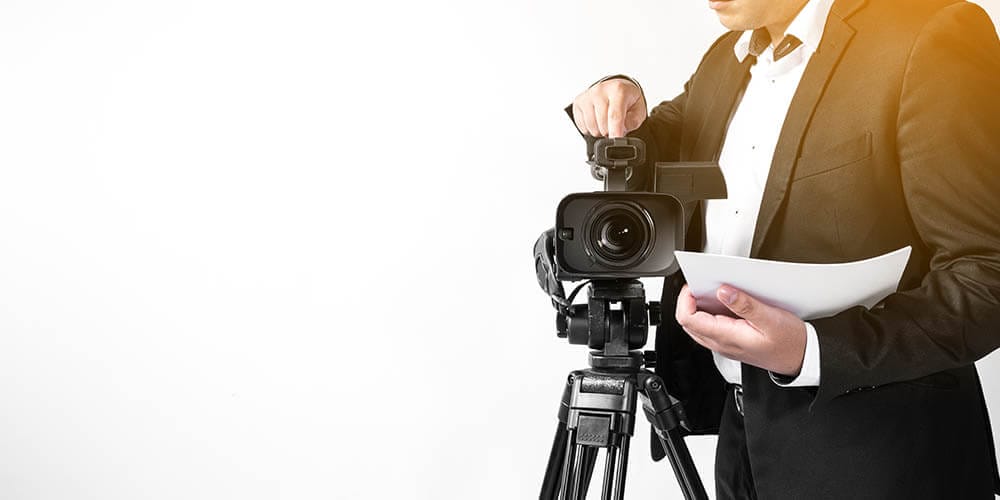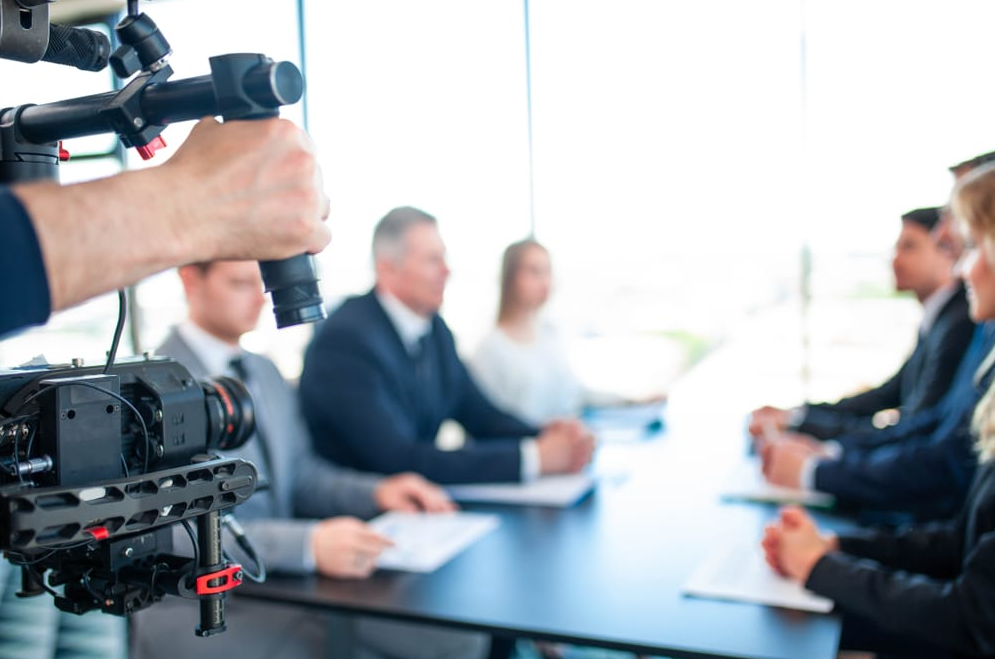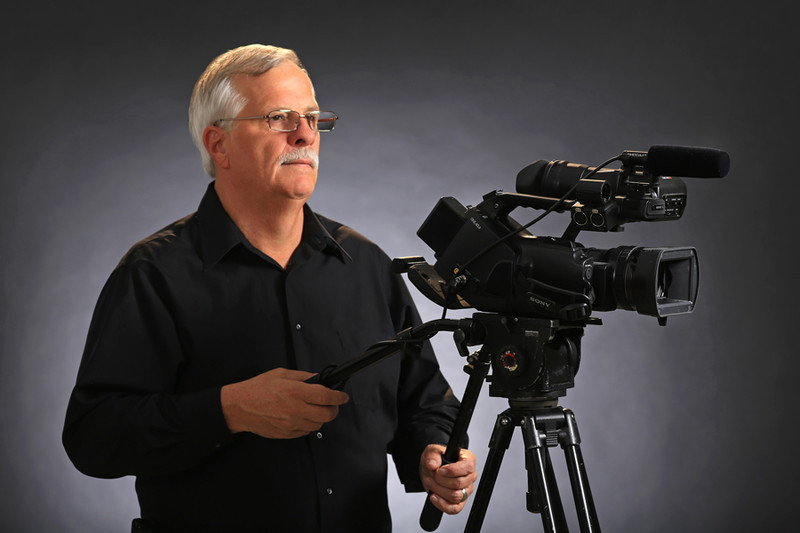The Function of Legal Videography in Depositions and Trials
Legal videography has actually arised as a necessary tool in both depositions and tests, offering a complex method to recording witness testimonies. As lawful professionals significantly recognize its worth, it triggers a much deeper examination of exactly how these visual records can affect juror perceptions and test outcomes.

Value of Legal Videography
Legal videography plays a crucial function in the paperwork and discussion of depositions and trials. This specific area incorporates technical abilities with lawful knowledge to produce a reliable document of process that can substantially influence case results. The appearance of lawful videography improves the understanding of witness statement, enabling jurors and courts to observe not just the talked words yet also the behavior, feelings, and body movement of the witnesses.
On top of that, legal videography offers an objective account of events, minimizing the potential for misconception that can accompany created records alone. This visual paperwork acts as an important tool throughout trial presentations, facilitating a clearer and even more persuasive narrative for both complainants and offenders. The capacity to replay video clip segments during court process makes it possible for legal teams to emphasize crucial points, reinforcing their arguments successfully.
The value of legal videography expands past the court; it additionally plays an essential function in maintaining evidence for future referral, whether for appeals or further legal activity. As such, its combination right into the lawful procedure is essential for guaranteeing a fair and precise representation of the realities, inevitably adding to the search of justice.

Refine of Legal Videography
While recording the subtleties of depositions and trials, the process of legal videography entails a number of crucial steps that ensure premium, exact recordings. Initially, a specialist legal videographer prepares by assessing the situation products and understanding the particular requirements of the deposition or test. This preparation consists of acquainting themselves with the participants and the context, which helps in catching pertinent information.
On the day of the recording, the videographer sets up the essential tools, which commonly consists of high-def electronic cameras, microphones, and proper lights. Ensuring optimal angles and audio quality is vital, as it straight impacts the effectiveness of the recording. The videographer connects with attorneys and individuals to establish protocols, ensuring that everybody recognizes the recording process.
Throughout the deposition or trial, the videographer diligently videotapes the procedures, paying close interest to both spoken and non-verbal hints. This consists of recording the demeanor and reactions of witnesses and attorneys. After the session wraps up, the videographer might edit the video for clearness and compliance with legal criteria, creating an end product that precisely shows the proceedings for future recommendation and usage in legal contexts.
Advantages in Depositions
The unification of videography in depositions supplies many advantages that enhance the general procedure of gathering proof. One key advantage is the capability to record witness statements with visual and auditory integrity, giving a more exact depiction of the witness's temperament, tone, and body language. This multidimensional technique enables attorneys and courts to assess credibility better than traditional written transcripts alone.
In addition, videographed depositions act as an effective device for maintaining testimony. Should a witness become unavailable for trial, their tape-recorded deposition can be played in court, ensuring that their proof stays easily accessible and relevant. This aspect substantially decreases the risk of losing crucial details that might impact instance outcomes.

Last but not least, videography improves the overall expertise of the deposition procedure, instilling confidence in clients pertaining to the thoroughness of their legal depiction (legal videography). By leveraging modern technology, lawyers can significantly improve the performance of depositions
Influence On Trials
In numerous trials, the combination of videography can considerably affect the presentation of proof and the court's understanding. Lawful videography records witness testaments and critical evidence in a vibrant style, enabling jurors to engage with the material on numerous levels. Visit Website This aesthetic component enhances the storytelling element of a trial, supplying context and emotional vibration that typical text-based evidence might do not have.
In addition, video clip recordings can offer as powerful tools for impeachment during cross-examination. When discrepancies occur between a witness's prior statements and their court testimony, video proof provides an unbiased referral that can sway jurors' viewpoints. This immediacy and clarity can reinforce the integrity of a party's narrative while concurrently undermining opposing debates.

Future Trends in Legal Videography
As we look towards the future of legal videography, several emerging fads assure to improve its role within the courtroom. One significant trend is the integration of man-made intelligence (AI) in video evaluation and editing and enhancing. AI can enhance the procedure of determining crucial moments in tape-recorded depositions, enabling attorneys to rapidly access relevant material, consequently boosting performance in situation preparation.
Additionally, the surge of digital reality (VR) and boosted fact (AR) technologies is expected to transform how jurors experience proof. legal videography. By submersing jurors in a simulated setting, these modern technologies can provide an extra extensive understanding of complex circumstances, causing more educated deliberations
Furthermore, the enhancing need for remote depositions, increased by the COVID-19 pandemic, will likely continue. Legal videographers will require to adapt to new software and look at here systems to ensure high-quality recordings in virtual settings.
Finally, the growing emphasis on information safety and security will certainly require stricter protocols for saving and sharing video proof. As the lawful landscape evolves, lawful videographers need to remain abreast of these patterns to preserve their significance and performance in the judicial process.
Final Thought
In summary, lawful videography serves a vital function in the judicial procedure, enhancing the stability of depositions and trials. By catching the nuances of witness statements, this tool not just preserves important proof but likewise aids in presenting information properly to jurors. The importance of aesthetic paperwork in evaluating trustworthiness and facilitating interrogation can not be overstated. As innovation continues to advance, lawful videography is positioned to more change its role within the lawful landscape.
Comments on “Affordable Legal Videography Solutions for Legal Experts.”